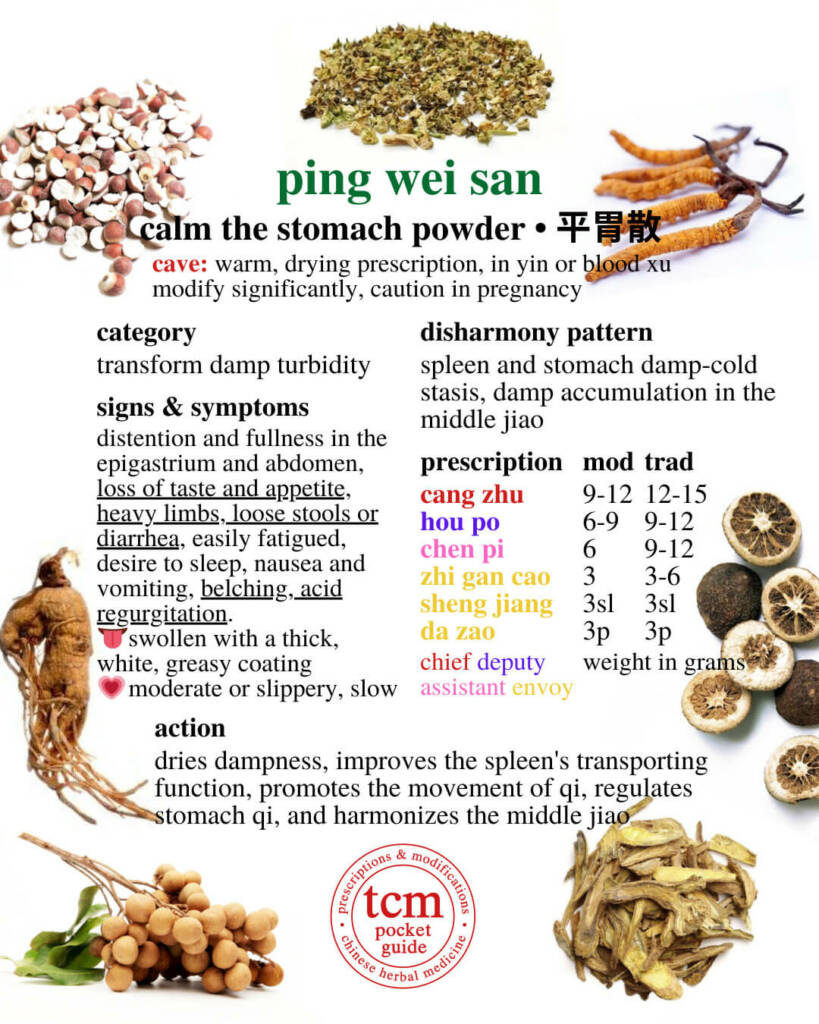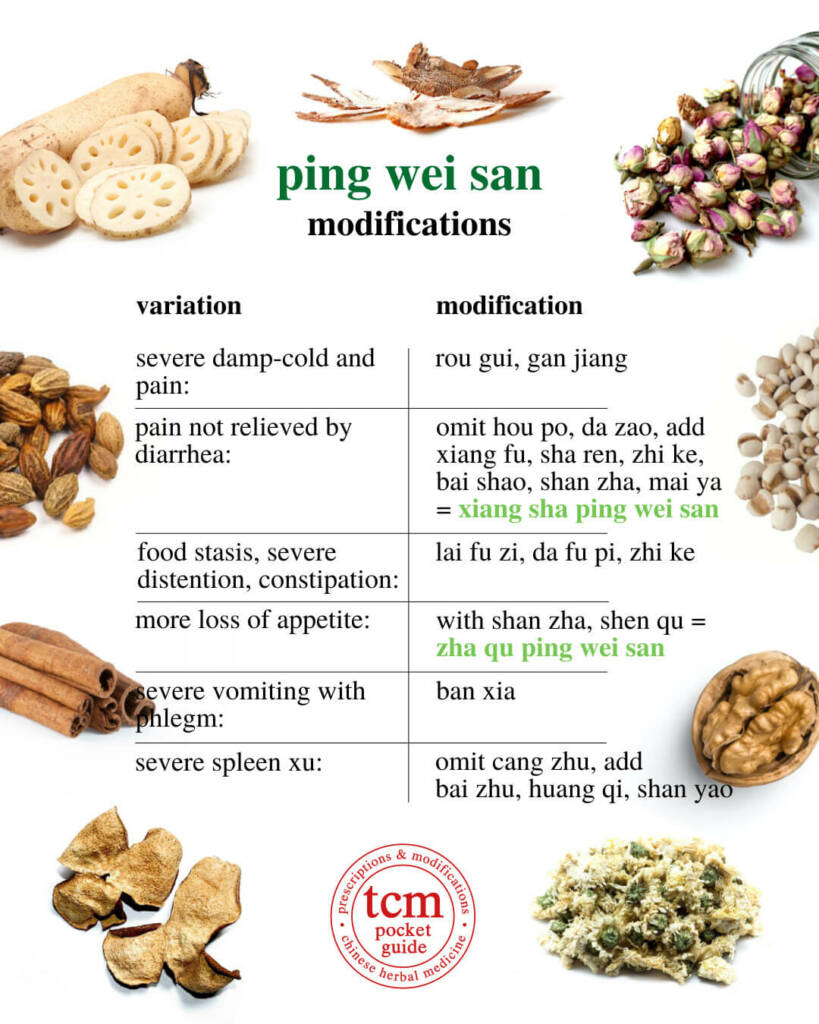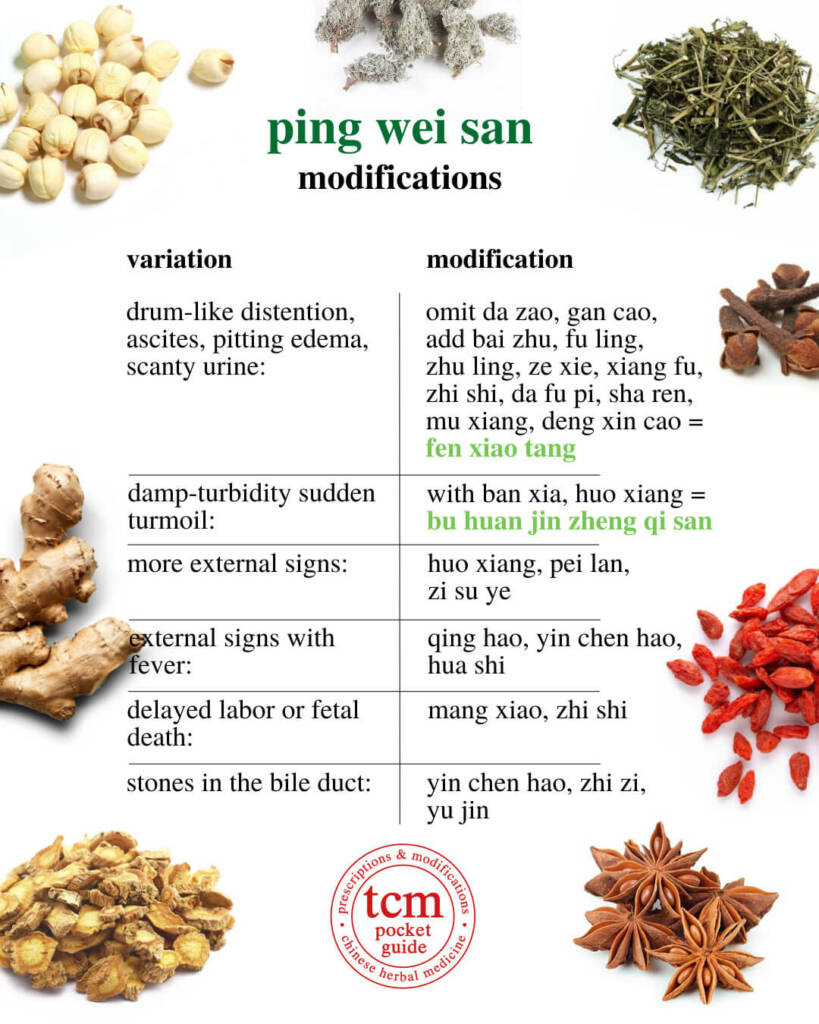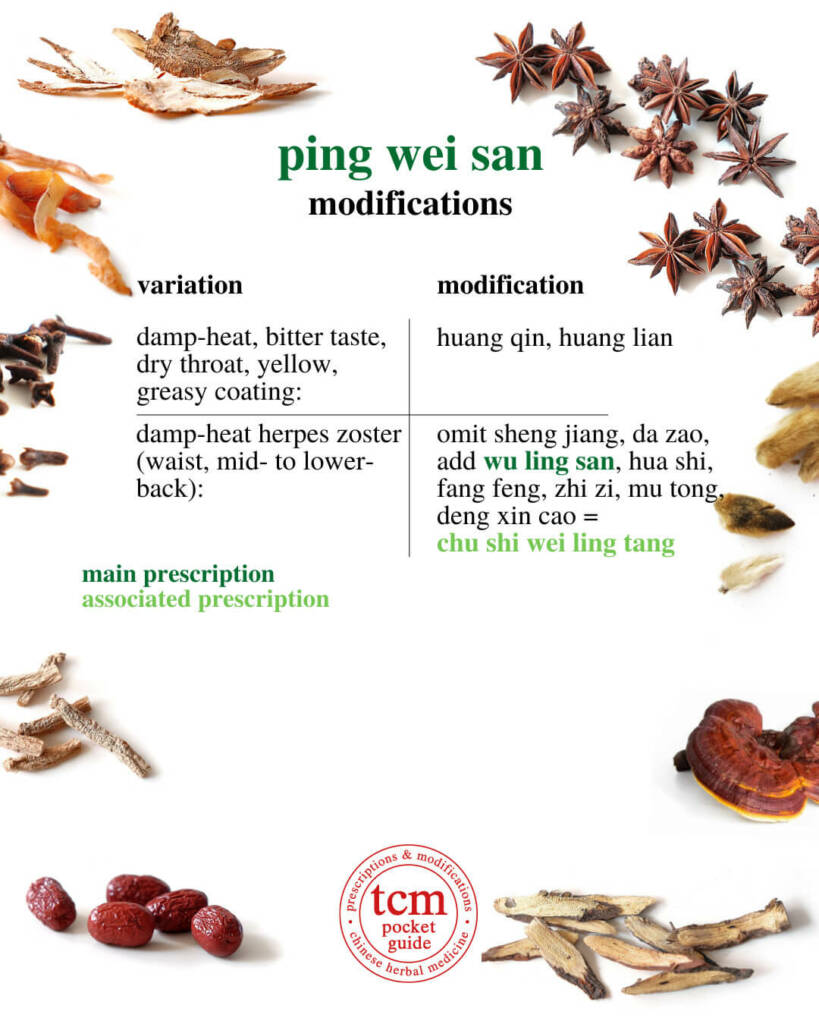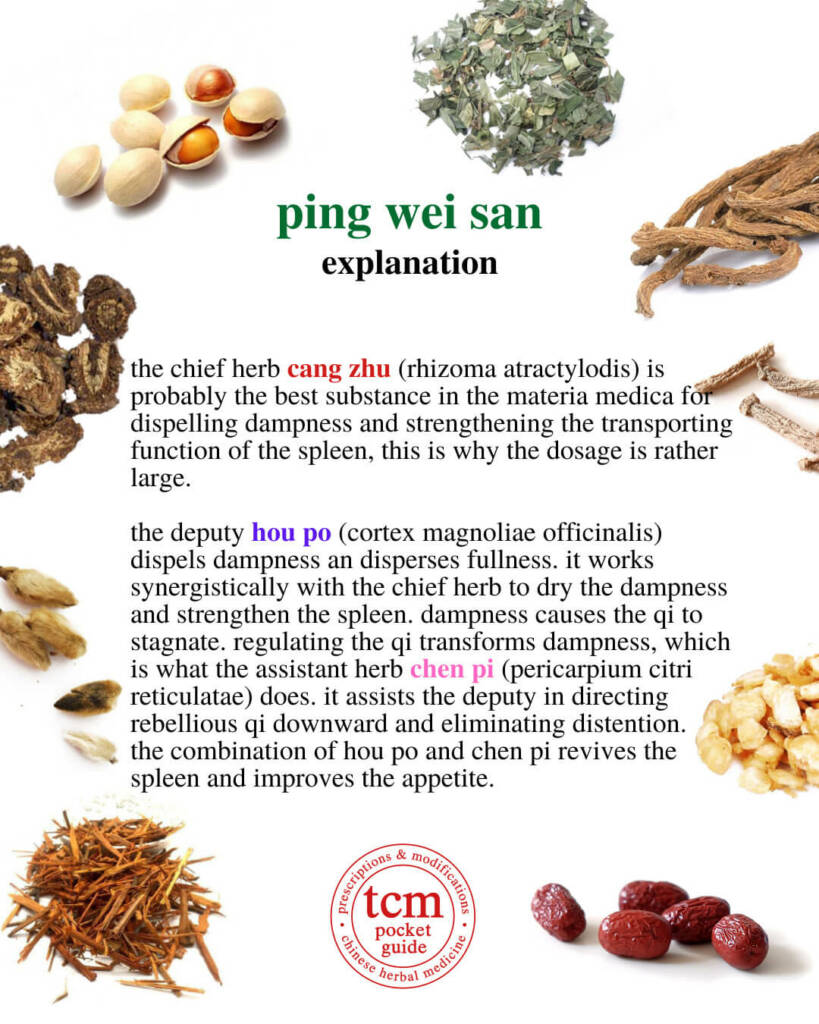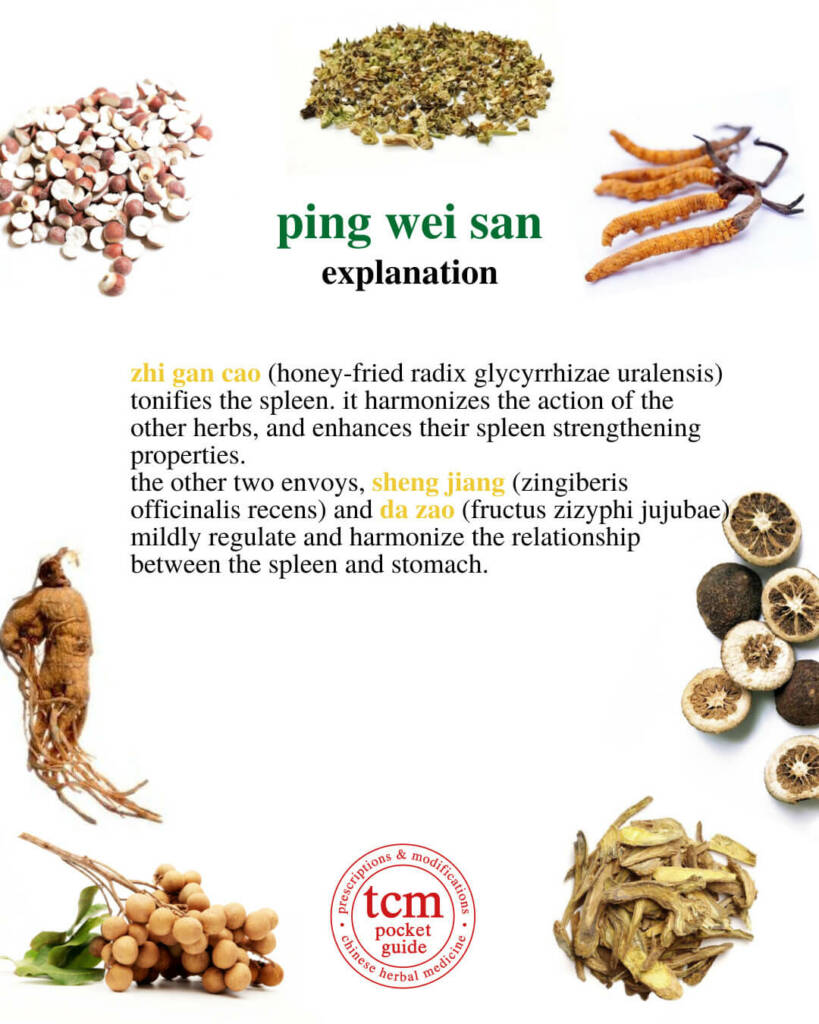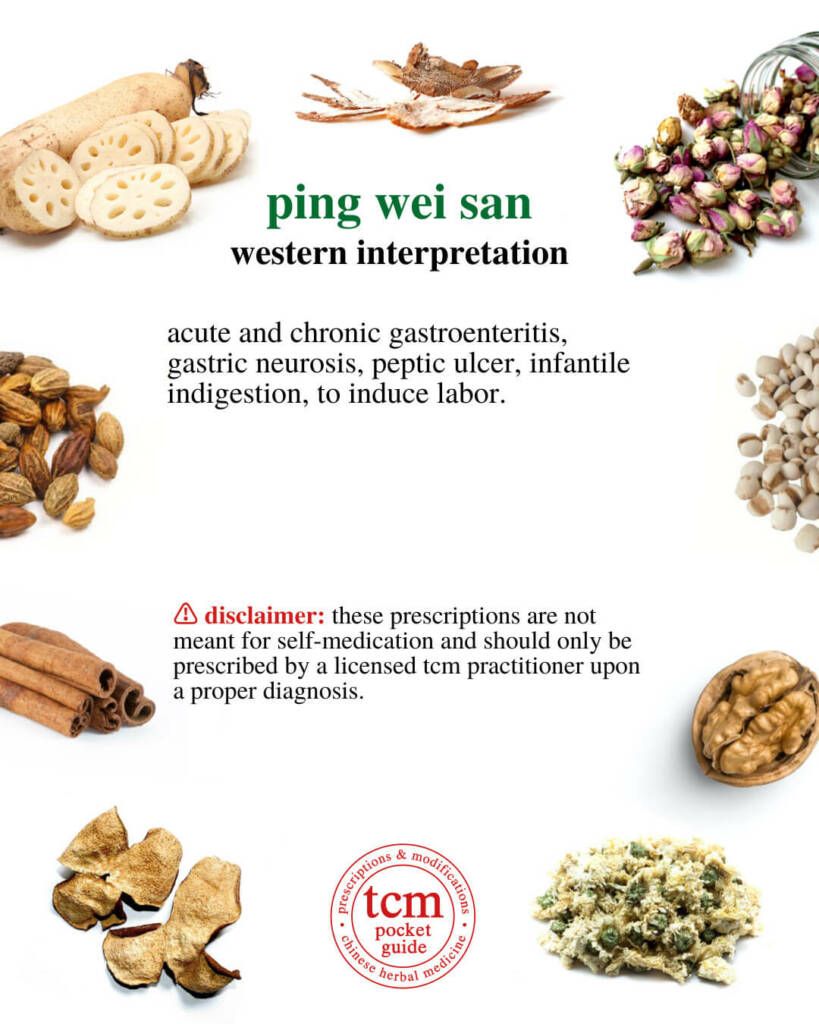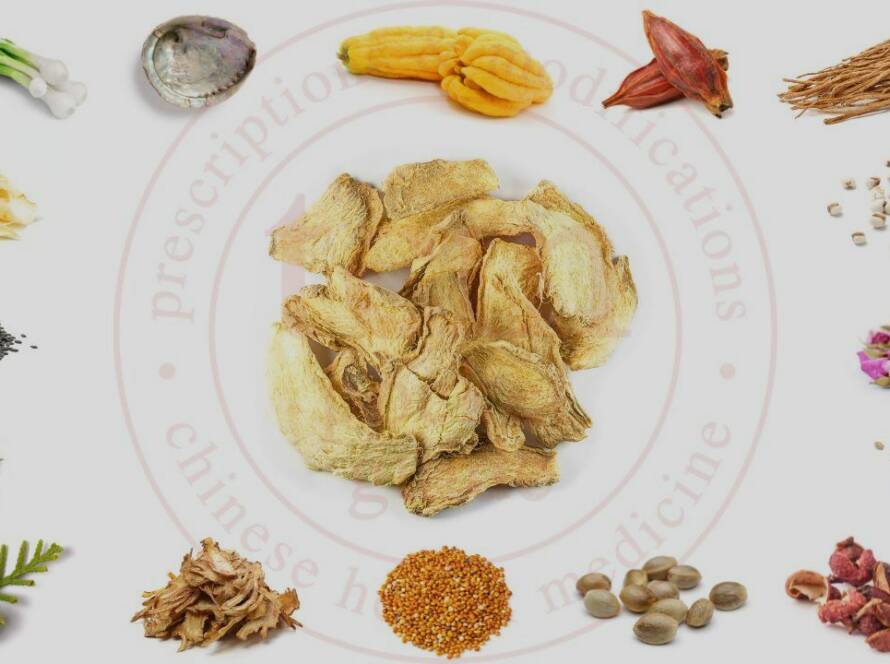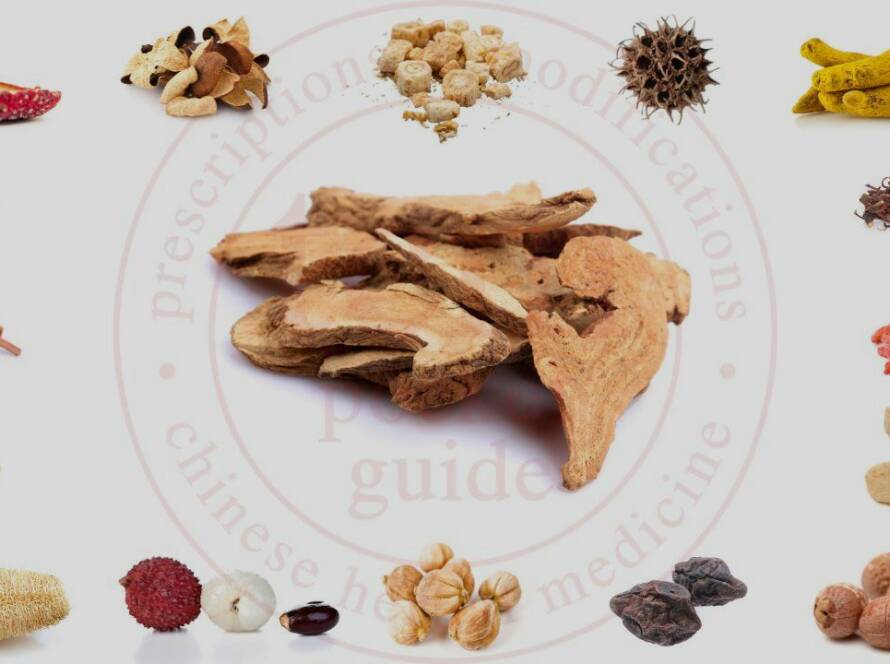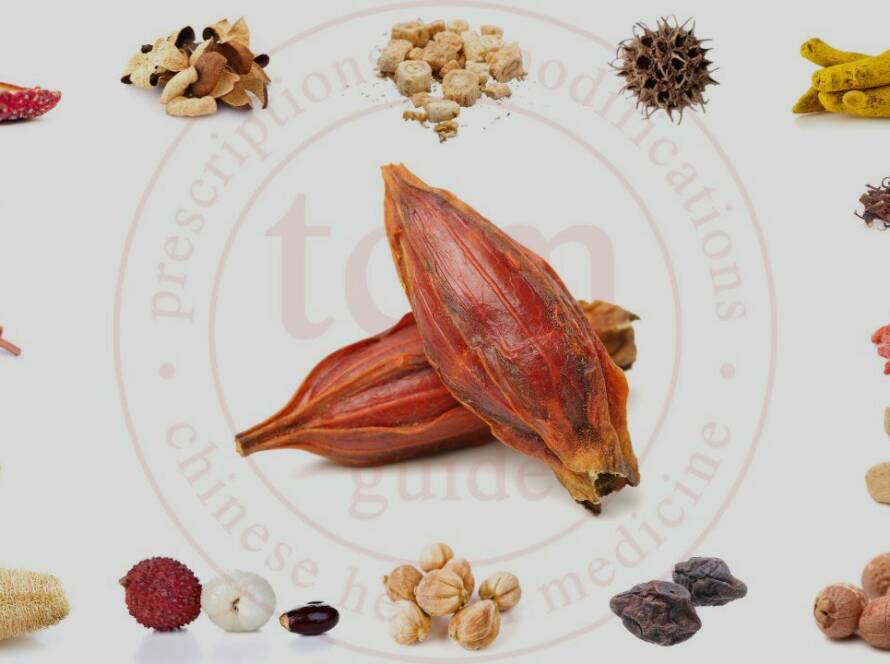píng wèi sǎn is used for patterns with
spleen and stomach damp-cold stasis, damp accumulation in the middle jiao, spleen dampness disturbing the lungs.
symptoms indicating the use of píng wèi sǎn
distention and fullness in the epigastrium and abdomen, loss of taste and appetite, heavy limbs, loose stools or diarrhea, easily fatigued, desire to sleep, laziness, lethargy, nausea and vomiting, belching, acid regurgitation, persistent bitter taste in the mouth, headache triggered by strong smells, cough with sputum, fullness in the chest.
western interpretation of píng wèi sǎn
acute and chronic gastroenteritis, gastric neurosis, peptic ulcer, infantile indigestion, to induce labor.
explanation of the mechanism
the this is damp-cold stagnation in the spleen and stomach. the spleen is responsible for transforming food into nutrients and for transporting those throughout the body. it prefers dryness and the smooth flow of qi, and is adverse to dampness and stagnation.
overconsumption of raw or cold foods leads to dampness, which encumbers the spleen and produces turbid dampness. this in turn causes the qi of the middle jiao to stagnate, giving rise to distention and fullness throughout the abdomen.
the symptoms of loss of taste and appetite, a heavy sensation in the limbs, fatigue, an increased desire to sleep, and loose stools or diarrhea indicate that the spleen yang is unable to function.
the encumbrance of the spleen allows dampness to flow into the intestines, which exacerbates the diarrhea. the failure of the spleen’s transporting function prevents the stomach from receiving and passing the fluids downward. this causes the turbid yin to rise, which is characterized by nausea, vomiting, and acid regurgitation.
the swollen tongue reflects deficient qi, and the tongue coating the presence of damp-cold and turbid dampness. the moderate or slippery quality of the pulse reflects dampness encumbering the spleen.
(bensky & barolet)

created with love in switzerland 🇨🇭
feel free to share this content:


